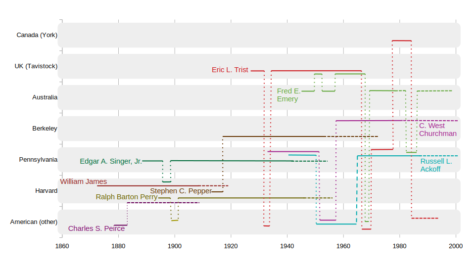Beyond city-building as urban planning is the idea of a Music City. This sees development of cultural life across a wide variety of arts, alongside economic benefits brought to the region. At the 119th meeting of Systems Thinking Ontario in March 2024, socio-cultural designer Adam Hogan and musician-designer Ziyan Hossain joined moderator Zaid Khan in conversation. Both panelists are alumni of the Strategic Foresight and Innovation program at OCADU.
After short self-introductions by participants, the panelists were lightly guided through some focus questions. How does a music city relate to urban communities? What encourages or discourages a music city? What systems are associated with a music city? Between focus questions, participants were invited to offer reflections and insights.
This recording of the session is available on Youtube, as well as on the Internet Archive .
| Video | H.264 MP4 |
| March 18 (1h53m) |
[20240318_ST-ON_MusicCityMaking AdamHogan_ZiyanHossein.m4v (1920×1080 1156kbps 908MB) [on the Internet Archive] |
A standalone audio was also created during the meeting.
| Audio | |
| March 18 (1h53m) |
[20240318_ST-ON_MusicCityMaking AdamHogan_ZiyanHossein.m4a] (126kbps, 91 MB) [on the Internet Archive] |
A short description of the session follows below, with pre-readings linked on the original abstract.
— begin excerpt —
Music and urbanization. Two aspects of life that together form the concept of a “music city”. Music cities have typically been framed as vehicles for economic development. But what else do music cities provide? What can systems thinkers learn from the the dynamics of music cities?… Read more (in a new tab)



